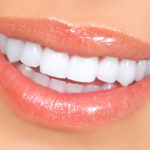By Bonnie Jenkins
No matter what my friend Pat tries, she simply can’t lose weight. She’s tried every diet and she exercises like a fiend, but nothing seems to help. She’s also constantly tired and suffers from raging migraines. A recent trip to her doctor pinpointed the problem. It turns out that Pat is one of an estimated 59 million Americans with a thyroid problem.
The thyroid, a small, butterfly-shaped gland located in the front of your neck, pretty much rules your body. Because it regulates your metabolism, an underactive thyroid (hypothyroidism) slows everything down—from your pulse and temperature to your energy level and the rate at which you burn calories. This condition can also result in depression, fatigue, sensitivity to cold, painful or heavy periods, fertility problems, dry skin (sometimes with yellow-orange coloration), high cholesterol, low heart rate, recurrent infections, migraines, trouble concentrating, and unexplained weight gain. It’s linked to excess estrogen, as well as numerous other chronic diseases.
An overactive thyroid (hyperthyroidism), on the other hand, revs the body into overdrive. While hyperthyroidism is less common than hypothyroidism, it can cause irritability and restlessness, feeling too warm, insomnia, hair loss, and unexplained weight loss. If you’re a woman in perimenopause (the time when your body is transitioning through the changes in your cycle), it’s smart to have your thyroid function checked since too much thyroid hormone in the body can be toxic to many cells, including those in the heart and bones.
MD Exposes the Hidden Danger to Your Eyes

When your eyesight starts to fail, it's a real problem. Suddenly you can't go to the grocery store... you can't get to the doctor if you have an emergency... you can't meet your friends for dinner…
Your "regular" doctor doesn't have time to keep up with the latest research. And the same goes for eye doctors. They go to school to learn how to fit you for glasses and contacts, but have no way of preventing the damage and loss of eyesight that threatens your freedom and independence.
Let me show you something that explains a LOT about how your eyes work.
In my FREE Special Report, I'll show you a HUGE, untapped resource for your eyes that safely and naturally restores clear, effortless eyesight.
Click here to get started...
Even if you aren’t a perimenopausal woman, if you’re experiencing any of these symptoms, you should follow Pat’s lead and get your thyroid hormone (thyroxine or T4) and thyroid-stimulating hormone (TSH) levels tested. Depending on the results, you may need to take daily thyroid hormones. But you can also complement hormone therapy with the following key nutrients. Even if your levels are normal, these essential vitamins and minerals can help keep your thyroid running smoothly.
Selenium. Before thyroid hormones can do their job, your body must convert them into an active form. This requires the mineral selenium. Taking 200 mcg of selenium daily can help to promote thyroid health. You can get the same amount from one big handful of Brazil nuts, which are by far the best food source of the mineral.
Zinc. You also need an adequate amount of zinc for your thyroid hormones to function correctly. In a small clinical study, researchers at the University of Massachusetts found that the thyroid hormone levels in zinc-deficient women improved significantly after four months of treatment with a 26.4 mg daily dose of zinc. Although further research is needed, taking 10 mg of zinc a day can enhance thyroid function. You can also increase your zinc intake by eating plenty of protein rich foods such as beef, lamb, pork, and oysters. But, since zinc can block copper absorption, be sure to take 1 to 2 mg. of copper daily as well.
Are You Suffering From...
- Love handles and a pot belly
- Romance that isn't what it used to
- Forgetfulness and inattention
- Low (or no) strength and endurance
- A sex drive that's shifted into neutral...or worse
If so...you may have Mature Male Burnout. Click here to discover more about this unique condition and what you can do about it.
L-tyrosine. If you don’t have adequate levels of L-tyrosine—a critical amino acid—your body may not make enough thyroid hormones. Fortunately, taking supplemental L-tyrosine can kick start a sluggish thyroid. However, L-tyrosine supplements can be too stimulating for some people, giving them the “jitters” and causing insomnia. Start with 200 mg or less a day and work up to 500 mg if you tolerate it well. L-tyrosine is also found in protein rich foods such as meat, dairy, fish, wheat, and oats.
Iodine. Essential for many bodily functions, iodine also plays a role in the production of thyroid hormones. But, while iodine deficiency is a major risk factor for hypothyroidism, too much iodine can aggravate the thyroid and worsen existing conditions. You need at least 150 mcg. of iodine a day, most of which you can get through iodized salt. However, if you use non-iodized salt, you need to get iodine from other sources, such as seafood, seaweed, dairy and eggs. If you eat any of these foods, you shouldn’t need to supplement. Problems from too much iodine arise when you take several milligrams daily.
In addition to adjusting your diet and taking supplements to promote good thyroid health, you should also consider working on reducing stress levels.
Stress is a common cause of thyroid dysfunction, and it’s a good idea to work with an integrative practitioner to determine which nutritional or herbal therapies can help reduce the stress hormone cortisol and restore balance in your body. Adaptogenic herbs like ashwagandha can combat the effects of stress, help you sleep, and restore energy. Relaxation techniques like aromatherapy, deep breathing, exercise, massage, meditation, progressive relaxation or traditional Chinese medicine paired with the above supplements can also help tame underlying problems and help rebalance your thyroid hormones.
References:
Higdon, J. “Micronutrient Information Center.” Linus Pauling Institute. 2010 March 1. <http://lpi.oregonstate.edu/infocenter/minerals/iodine>
Kostoglou-Athanassiou I. Hypothyroidism – new aspects of an old disease. Hippokratia. 2010;14:82-87.
Laurberg P. Iodine intake as a determinant of thyroid disorders in populations. Best Practice & Research: Clinical Endocrinology & Metabolism. 2010;24:13-27.
Przybylik-Mazurek E. Thyroid Disorders-Assessments of Trace Elements, Clinical, and Laboratory Parameters. Biological Trace Element Research. 2010 May 9. [Epub ahead of print]





